"There Are Over 60 Amputees Due to the War; We Are Here to Help Them"
What do you say to someone facing leg amputation? Can their life continue? Why did the War of Iron Swords add dozens to the amputee community? Ronen Litvak, CEO of 'The Next Step,' offers an inspiring and hopeful interview.
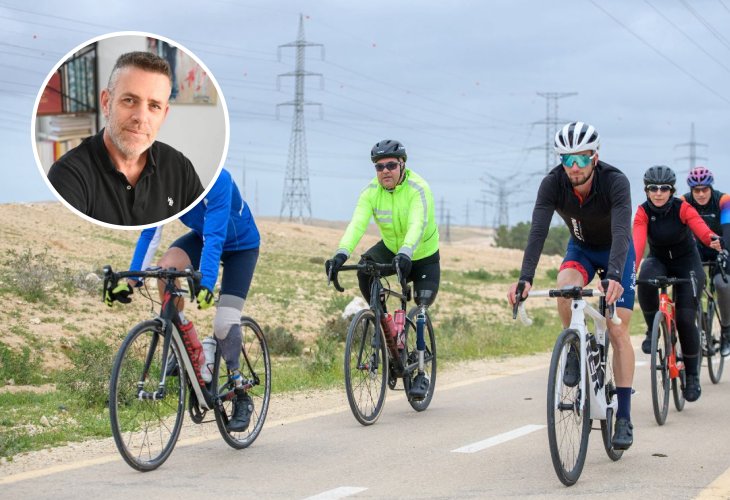 (Photo: The Next Step Organization) In the circle: Ronen Litvak, CEO of 'The Next Step' Organization.
(Photo: The Next Step Organization) In the circle: Ronen Litvak, CEO of 'The Next Step' Organization.Ben and Gali, a couple from Ramat Gan, never imagined they would find themselves hospitalized side by side after the amputation of their right leg. The tragic event at the party in Reim forced this surreal situation upon them after they hid together in a shelter, were gravely injured by a grenade thrown inside, and were rushed to the hospital.
It's undoubtedly a significant challenge, but fortunately, they encountered the right people to help and empower them. Among the first to visit them at Hillel Yaffe Medical Center was Ronen Litvak, CEO of 'The Next Step – Amputees in Israel,' accompanied by other members of the organization, all amputees themselves yet living full and independent lives without any limitations.
"When we first came to visit, we sat with the families, not just with the young man and woman," Ronen recalls. "We inquired about their condition, explained life with a missing leg, and answered all their questions. At some point, we even removed our prosthetics and gave a full explanation. Two weeks later, a birthday party for Ben was held at the hospital, and we were invited. When we met the mother there again, she looked so moved and told us, 'You are the first light that came into this entire darkness.'"
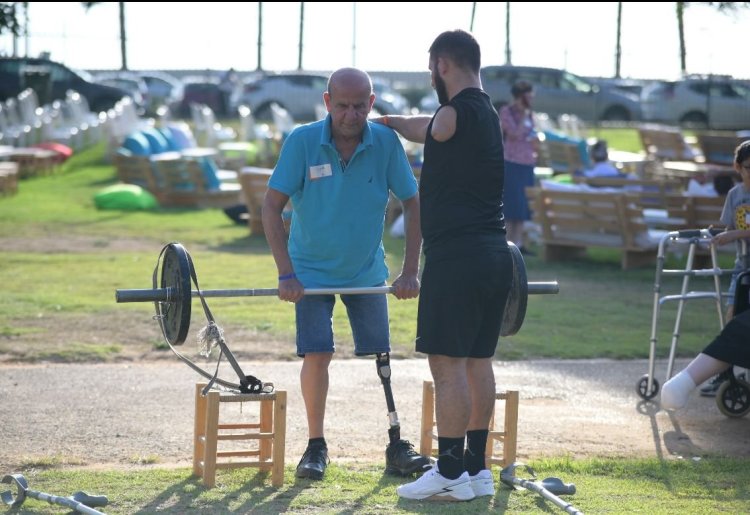 Photo: The Next Step Organization
Photo: The Next Step Organization![Photo: The Next Step Organization]() Photo: The Next Step Organization
Photo: The Next Step Organization
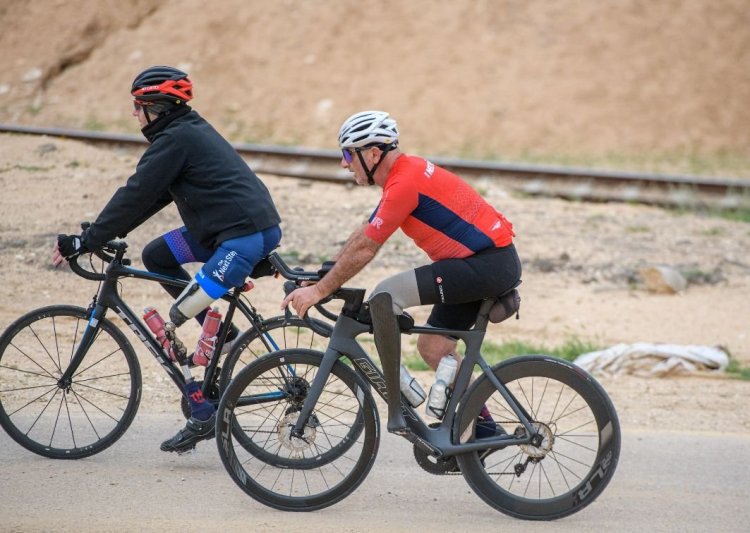 Photo: The Next Step Organization
Photo: The Next Step OrganizationContinuing to Live
"Light within the darkness" is a phrase Ronen and members of 'The Next Step' hear repeatedly after visiting those who have lost limbs and whose lives have drastically changed.
Ronen himself is an amputee, 47 years old, a father of three, and a retired IDF officer. "Throughout my life, I was a commander and a fighter, but ironically, I didn't lose my leg in the army. It was due to a rare disease at age 40," he shares. "During my own recovery, someone who lost his leg a year before visited me. He described life post-amputation and gave me immense strength. That's what led me to decide to visit amputees and eventually take on the role of CEO of 'The Next Step.'"
What do you offer as part of the organization?
"Our vision is to provide all amputees in Israel with maximum independence and realize their potential. We work on three different fronts. The first front involves creating a community where we formed a 'group of equals.' This is unique, as there are places like 'Beit Ha'Lochem' for IDF veterans that offer services for various disabilities, including post-traumatic veterans without physical limitations, and those with paralysis of both lower limbs requiring a completely different approach. Someone who lost an arm or leg doesn't identify with either and thus doesn't find a place. An amputee can achieve far greater accomplishments than those paralyzed but needs the right attention, which we offer through the community we've established.
"We offer social gatherings where seasoned amputees meet new ones, support groups for families and spouses, as well as groups for parents of children with amputations. We believe a supportive environment is one of the most crucial things for amputees, and that’s precisely what we aim to strengthen.
"Within our community activities, we place emphasis on sports, and I'm not talking about adaptive sports, because an amputee can engage in regular sports like cycling, rock climbing, surfing, or swimming. Amputees consistently prove they can do it.
"The second front deals with knowledge and technology, as the knowledge regarding prosthetics in Israel is limited, whereas countries like the U.S. offer much more. We've set a goal to develop this area in Israel and bring as much knowledge and professionalism as possible.
"The third front of the organization involves improving and maximizing rights, to ease the process for amputees and provide maximum information about their rights in an accessible and practical way. We’re also working to improve the rights in Israel, participating in Knesset committees and pushing forward legislative changes."
What do you say to an amputee when you visit and it seems like their world has collapsed?
"It's crucial to highlight that we have a large system of volunteers that we've established in partnership with the psychological and social services at Sheba Medical Center. We visit all hospitals and sometimes meet those awaiting amputation and sometimes those who've already undergone the procedure. In these meetings, we aim to reflect that although not everything is rosy, an amputation is not the end of the world.
"After that, usually, the ice melts, and the amputees feel comfortable asking all the questions that concern them and express their fears. We try to answer accurately, not sugarcoat the situation, but also make them understand that an amputated person can live a life without any restriction, but with a challenge that’s manageable, especially when they have a new family – 'The Next Step' family, supporting them moving forward."
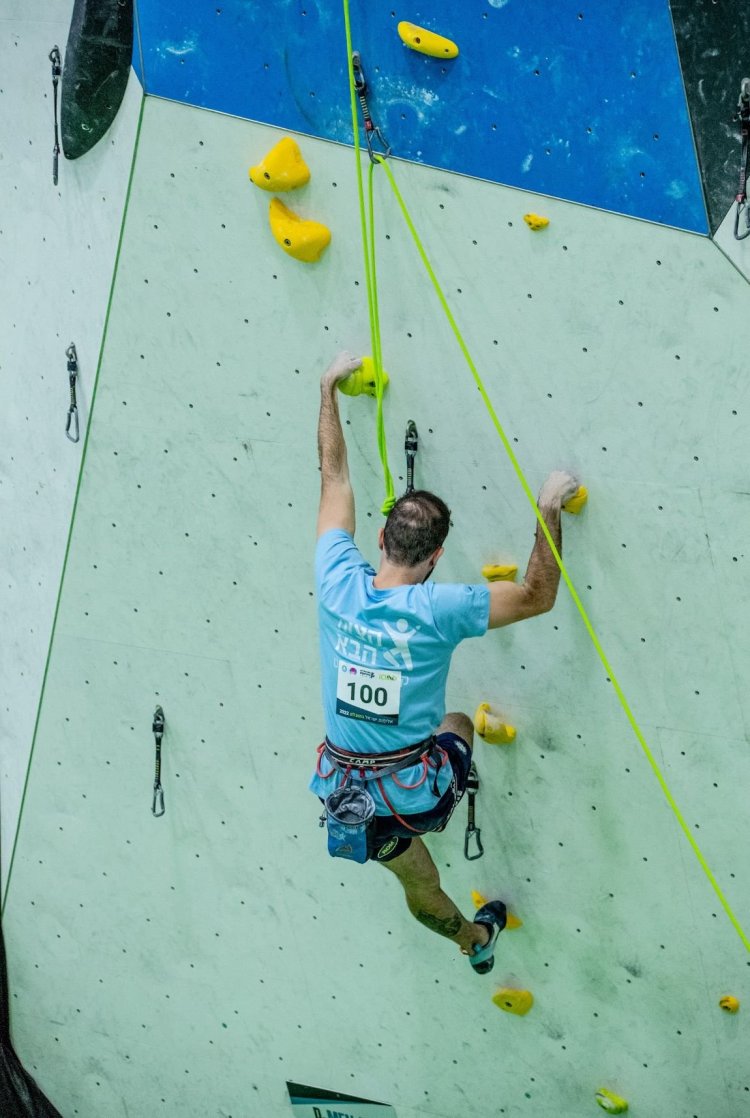 Photo: The Next Step Organization
Photo: The Next Step Organization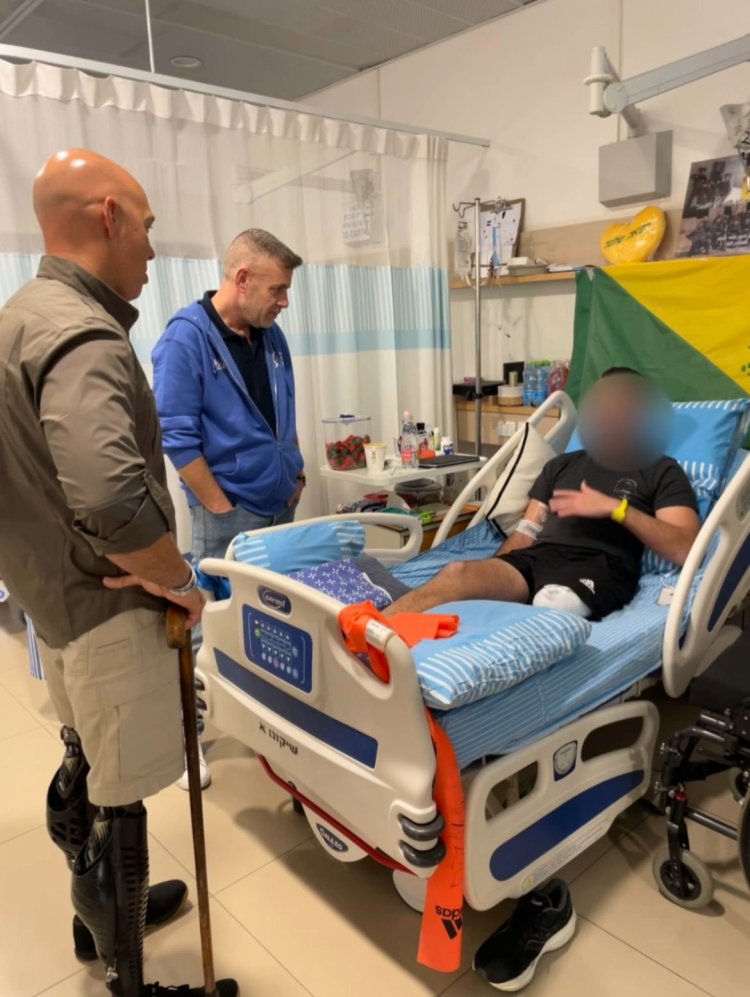 Photo: The Next Step Organization
Photo: The Next Step OrganizationFull of Fighting Spirit
Do you have an estimate of how many amputees are in Israel?
"There are no published clear data from the National Insurance Institute or the Ministry of Health, but according to our estimates, there are about 30,000, of which around 70% are older adults who experienced amputations, mostly due to diabetes. Many of them are not even interested in a prosthetic and are less concerned about rights. Of course, we strive to care for everyone, but in our organization, there are about 1,500 registered active amputees participating in all our initiatives. Most have experienced amputation due to road accidents, followed in order by: cancer or vascular disease, work accident, and finally, IDF veterans and victims of hostilities."
Recently, close to 60 new amputees have joined as a result of the war, according to Ronen. "War amputees fall into two main groups," he explains. "There are those injured on the day the surprise attack commenced, most were soldiers or civilians who remained with tourniquets in the field for extended periods without proper treatment. Others are primarily soldiers injured on the battlefield by explosives or blasts."
These days, Ronen, alongside his organization peers, strives to visit all limb-injured from the war, but unlike usual, they’ve adopted a new approach. "Previously, a single amputee from our side would visit another in the hospital; now, we aim to come in groups of three or four, emphasizing young people who are completely independent with prosthetics. We often meet families first, not the wounded person who is sedated post-surgery and unable to communicate. Words can't describe the hope families receive when they see us – young people, parents, all working and active. So yes, we have a prosthetic, but they understand it's not the end of the world. Once this feeling is conveyed to them, they transmit it to their recovering family member."
Ronen doesn’t allow himself to finish without praising the wounded he meets. "I see people who were severely wounded and evacuated straight from the battlefield to the hospital, yet they are full of fighting spirit. Many inquire how they might continue contributing to the war effort post-amputation, and many talk about how ‘the sacrifice was worth it for the goal.’ Of course, they face challenges, and everyone asks, 'Why me?' and 'How do I proceed?' Yet when I see the strong spirit of these young folks, I, too, gain strength from them, and I believe we’re all going to win, both in the general war and the personal one."

